On her first trip to rural Cambodia, 18-year-old Jasmine Goh was shocked to find that many children there didn’t own slippers and were drinking water so dirty, it looked like it came from a drain.
“What broke my heart was that they had no idea their living conditions were so poor,” she said.
Goh was in Cambodia as one of World Vision Malaysia’s “Famine advocates”, alongside Cindy Wong, 18, Issac Ng, 23, and Louise Lew, 29.
The four were selected by World Vision to experience first-hand what life is like in some of the world’s poorest areas, so they could bring their stories back to Malaysia and increase support for efforts to eradicate hunger and poverty.
Their stories will be particularly important in driving support for World Vision’s global 30-Hour Famine campaign in Malaysia.
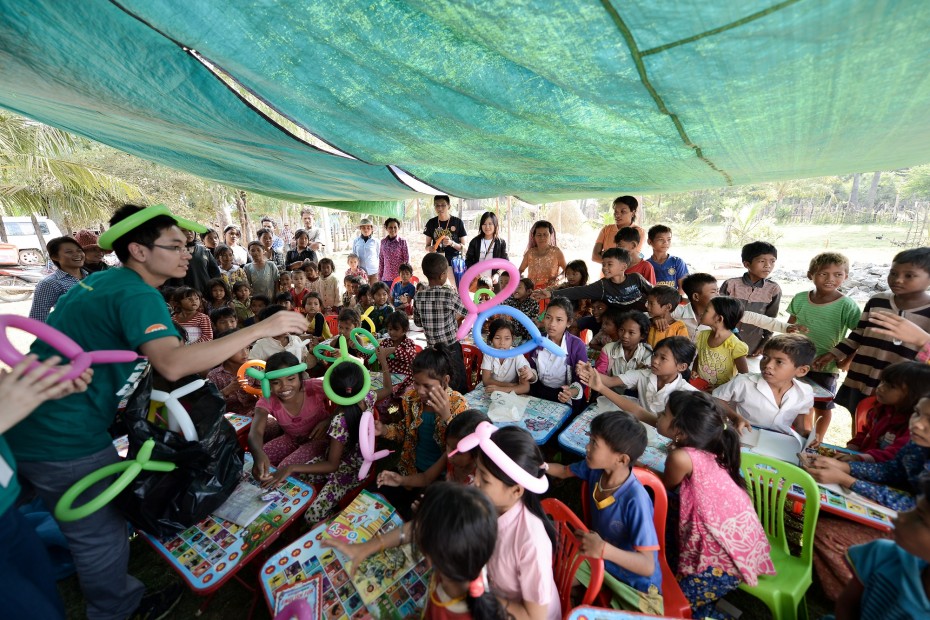
One of the projects in Stoung is the MyHOPE Children Club, which is an after-school extra class for kids aged four to 10. There, about 60 students are taught the Cambodian language Khmer, English, alphabets and numbers by high school students.
The before and after effect
Every child deserves the basic necessities needed to grow. From what I saw, children in some parts of Cambodia don’t have that.
Under its Area Development Programmes (ADP), World Vision Cambodia implements changes in some of the poorest areas around the world. During their trip, the advocates learnt about the development projects and progress in two areas – Stoung, which is still in the early stages of the development programme, and Prasat Sambour, where the programme has been in effect for 20 years.
In Stoung, projects such as MyHOPE Children Club and Mother’s Support Group have just been introduced to villagers.
MyHOPE is an after-school class for about 60 students, aged four to 10, who are taught the Cambodian language Khmer, as well as English, alphabets and numbers. The class came about after club leader and teacher Saveurn, 16, discovered that some of the younger kids who went to school still couldn’t read or write.
Having seen what MyHOPE is trying to do, Lew now realises that education is essential for children to thrive, especially in poverty-stricken areas.
“Every child deserves the basic necessities needed to grow. From what I saw, children in some parts of Cambodia don’t have that.
“In fact, they need to work and often abandon their studies due to poverty. It saddens me because these children have dreams of becoming doctors and teachers,” she said.
At the Mother’s Support Group, group leader Meas Pich and four other members teach other mothers the importance of living in a clean environment and preparing nutritious meals for their families.
With the change in diet and sanitation, many of the children have gained weight and no longer suffer from diarrhea as a result of eating food cooked with dirty kitchen appliances, not washing their hands before meals and drinking water that isn’t boiled.
Seeing first-hand how proper sanitation has changed the lives of the people, Wong said: “When they consume unclean food and water, they fall sick and can’t work, which means low or no income for their families. And we can help break this vicious cycle.”
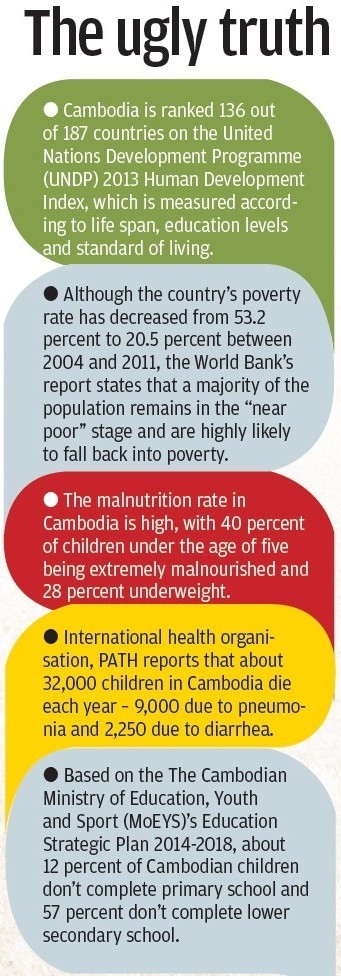
Tina, 13, is a World Vision Cambodia child leader also looking to break this cycle. She teaches other kids about personal hygiene routines, like washing hands and brushing teeth – everyday habits that could drastically change their lives.
In Prasat Sambour, the news is even more promising. There has been a total transformation in the 20-year period since the programme – which involved the teaching of entrepreneurial, vocational, agricultural and leadership skills – was introduced.
Life isn’t just about living, it’s also about giving back.
Now, the village is hygiene-conscious and enterprising. It has developed its own water catchment area so that farmers can still plant vegetables and paddy during the dry season.
There is also a water treatment and collection centre that filters and distributes clean water to the community.
However, making changes wasn’t as easy as it seems.
Stoung ADP manager Suy Kimseak revealed that the most challenging part was convincing the villagers that change is good.
Goh, who joined 30-Hour Famine in 2012 as a committee member in a World Vision camp at her school, said she has tremendous respect for the World Vision Cambodia staff who have dedicated their lives to helping people improve their living conditions, regardless of how long it takes.
“It took Prasat Sambour 20 years to be self-sustainable so I hope Malaysians will join this campaign and continue providing them with resources to help them better themselves,” she said.
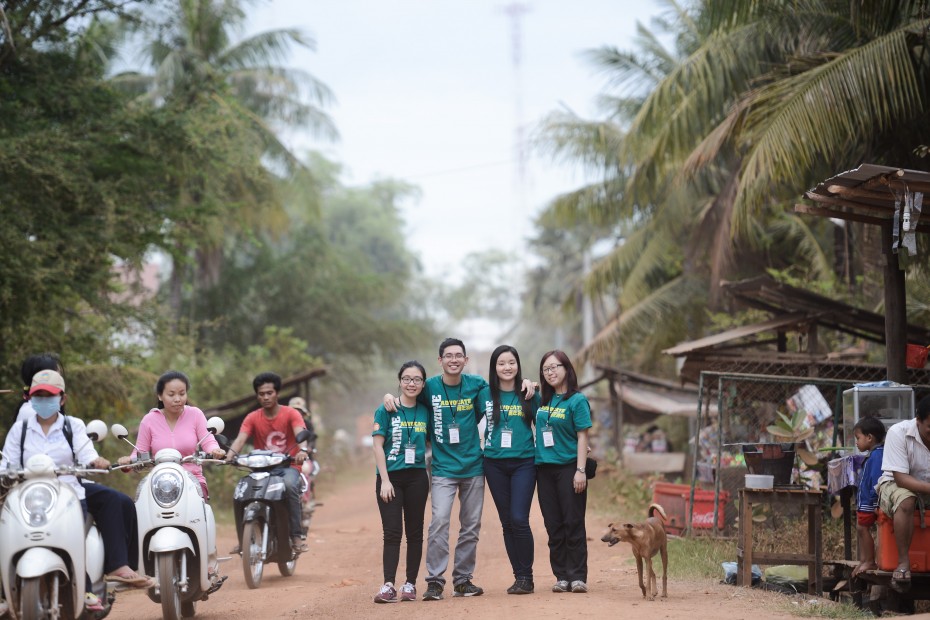
Lending a helping hand: 30-Hour Famine advocates (from left) Cindy Wong, 18, Issac Ng, 23, Jasmine Goh, 18, and Louise Lew, 29 saw the poor living conditions in Stoung and Prasat Sambour in Kampong Thom, Cambodia. And they hope to make a difference by sharing their experiences with Malaysian youth in order to raise awareness and funds. – Photos by Teh Jia Shyan.
What happens after the trip?
As Famine advocates, the four will be required to share their experience with camp leaders at a Camp Leader Training Workshop from April to May this year.
Camp leaders will recruit campers and organise DIY camps to raise funds for aid projects like the one in Cambodia as well as others in India, Myanmar, Sri Lanka, South Africa, China and Mongolia.
Local charities such as the Beautiful Gate Foundation for the Disabled and the Dignity for Children Foundation will also benefit from the campaign.
On August 1-2, the Famine advocates, camp leaders and campers will fast for a total of 30 hours, in support of the 30-Hour Famine campaign. This will take place in two stages: first in individual DIY Famine Camps across the country for 26 hours, before everyone comes together at a common venue for the last four hours.
At the end of the day though, it’s not just about doing symbolic things like fasting or giving money, said Ng. People can also help by spreading the message to others.
“Life isn’t just about living, it’s also about giving back,” he said.
Wong feels the same way because she believes children are the world’s most valuable asset. “We all know that children will someday take over the world. If we don’t take care of them now, imagine what their future will be like,” she said.
To find out more about the 30-Hour Famine campaign, check out here.

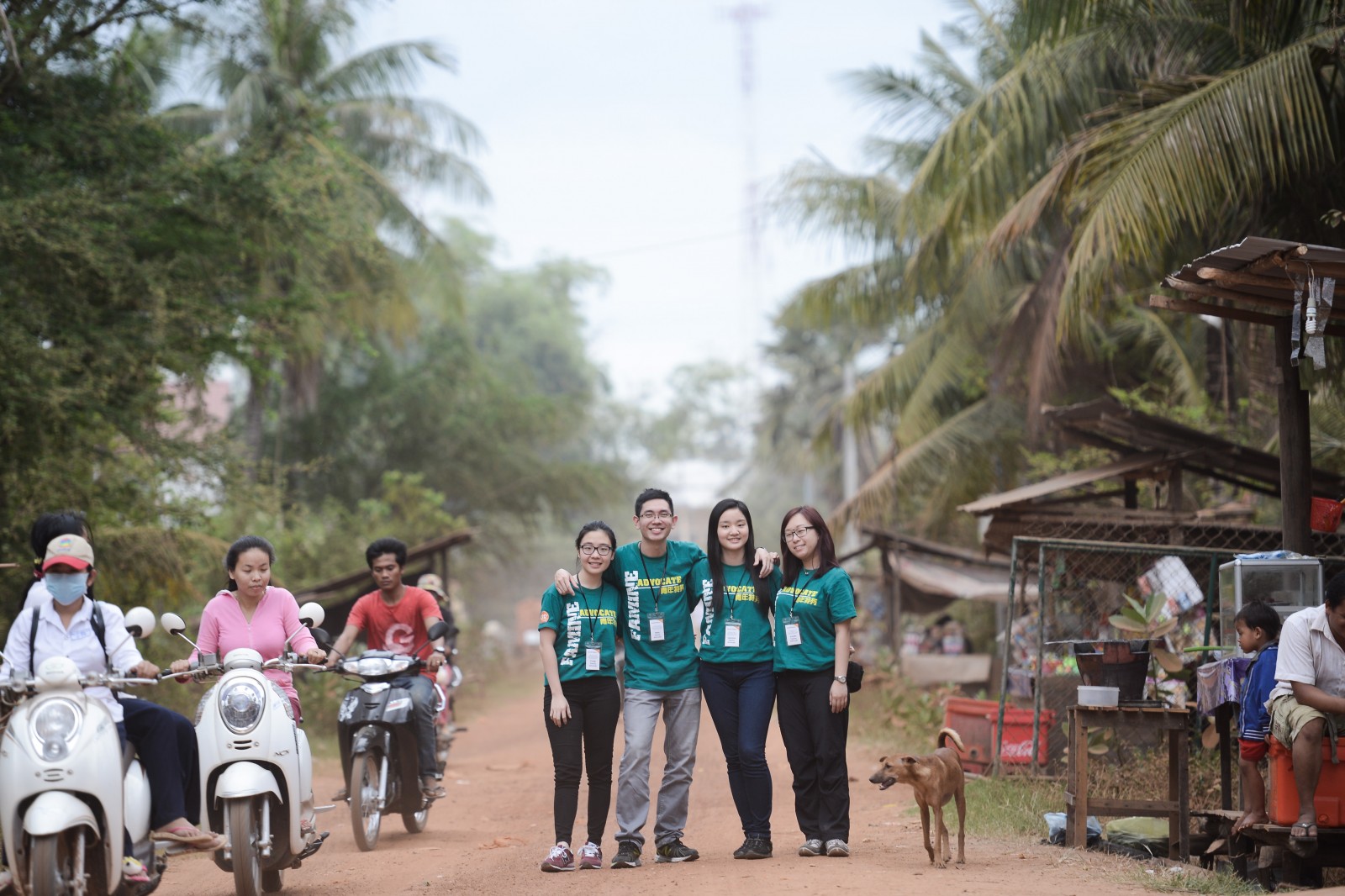
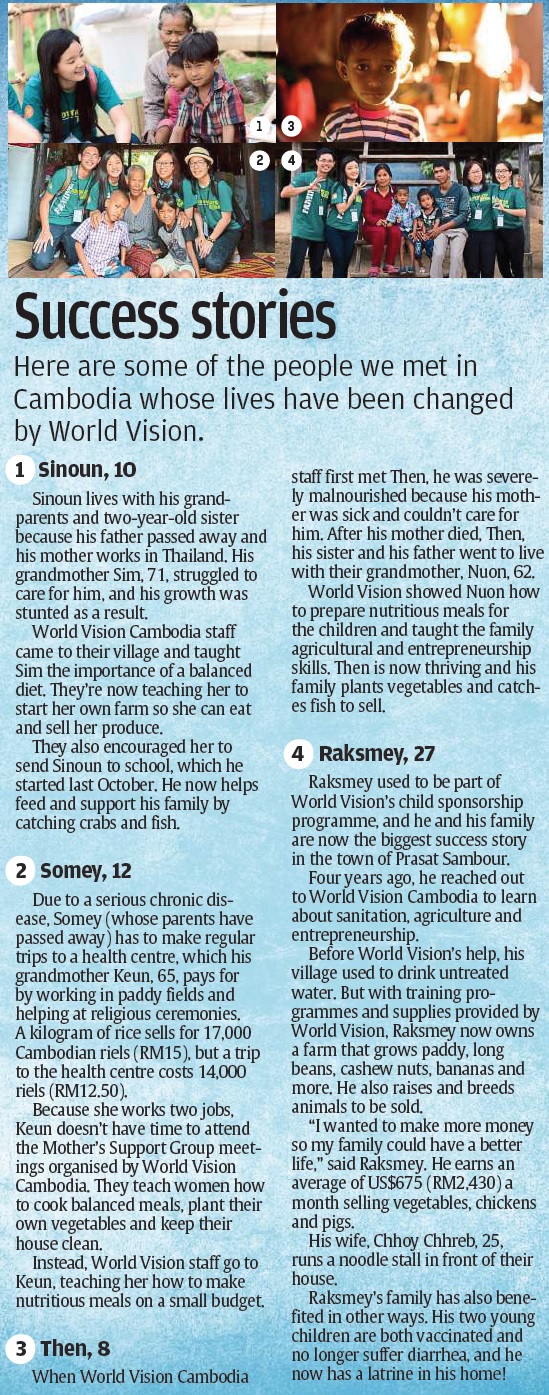





Tell us what you think!